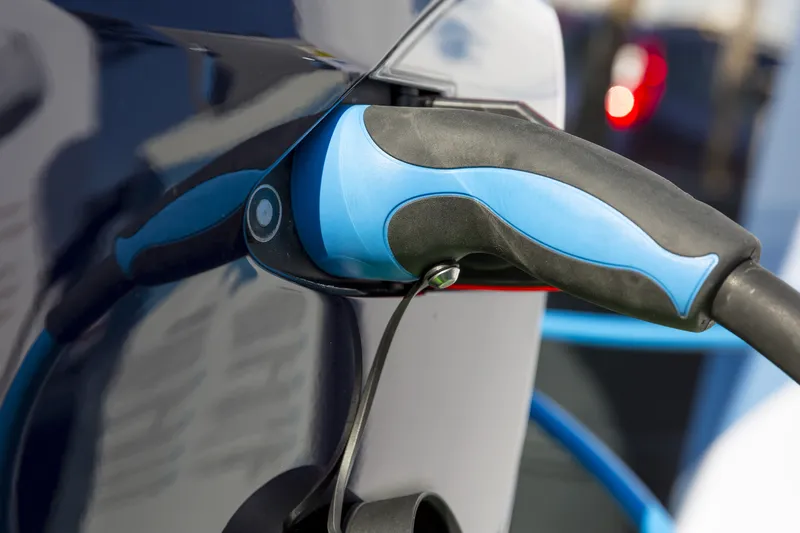
Gridserve has opened an electric forecourt in south-east England which it says can charge 36 electric vehicles (EVs) simultaneously.
The company claims the forecourt’s high power chargers can deliver up to 350 kW of charging power, enabling people to add 200 miles of range in 20 minutes.
The site, located near Braintree in Essex, is the first of more than 100 electric forecourts which Gridserve is building over the next five years.
The firm says this is to ensure the UK has the charging infrastructure required for mass AV adoption ahead of the 2030 ban on petrol and diesel cars.
Electricity is generated from the solar power canopies above the chargers and a network of hybrid solar farms, also operated by Gridserve.
The solar farm in Clay Hill is paired with Braintree electric forecourt, providing 100% renewable energy via the National Grid.
The 6 MWh battery on site helps balance the local energy grid and shift energy to periods when it is more valuable, the company adds.
For example, the battery is expected to store enough energy on winter nights to drive 24,000 miles in EVs the following day, helping to stabilise the grid and keep prices low.
Drivers charging at the forecourt will initially pay 24p per kWh of energy, meaning a typical charge from 20% to 80% costs under $10 for an average-size EV.
As the vehicles charge, drivers can visit the retail space which hosts partners such as WH Smith, Costa Coffee and Gourmade.
The facility also includes a waiting lounge, free WiFi, a wellbeing area with exercise bikes that generate electricity and business meeting room pods.
The upper floor of the on-site building showcases EVs while digital screens provide information about the technology.
As part of this commitment, Gridserve is hiring enthusiasts to help educate people about EVs and arrange test drives.
Additionally, Gridserve and Hitachi Capital are launching a zero EV leasing business with the aim of bringing the cost of driving electric below petrol and diesel cars.
Net zero-carbon energy is included in monthly leasing payments, allowing drivers to charge at electric forecourts without paying any additional costs.
Gridserve insists this enables people to compare the cost of leasing a petrol or diesel vehicle, plus fuel, with an EV with fuel included.
Gridserve and Hitachi plan to offer EVs from all major vehicle manufacturers. At the launch of this initiative, brands included Mercedes Benz, Audi, BMW, Nissan and Tesla.
Both parties funded this project alongside Innovate UK and OZEV.










